Meet the Black musician behind Elvis' biggest songs, who had to give up his writing credits and never met The King in person
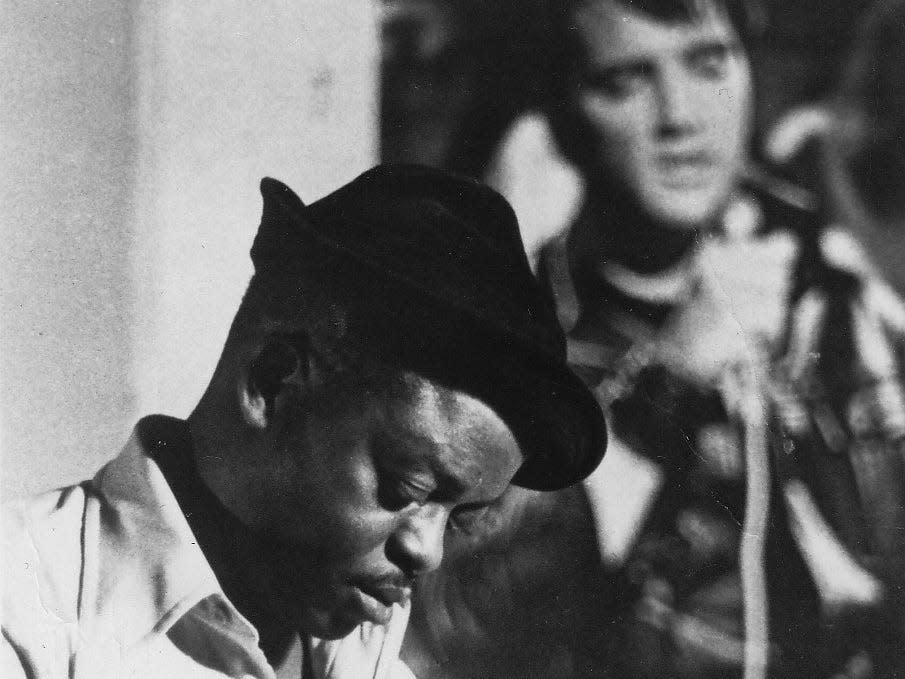
Otis Blackwell was a Black musician popular for his talented songwriting skills and unique sound.
Blackwell wrote hit records for a plethora artists, most notably Elvis Presley.
Though Blackwell never met Presley, he is responsible for some of The King's most famous songs, including "All Shook Up" and "Don't Be Cruel."
From the late 1950s throughout the 1960s, Elvis Presley became known as The King of rock 'n' roll. From his sexually-driven lyrics to his controversial dance moves, the Tupelo, Mississippi native who recorded some of his most famous records at Nashville's Studio B, became popular amongst his fans and critics for liberating the conservative mainstream music scene. His greatest controversy, however, is not tied to his PG-13 performances, but instead, to the origins of his sound, lyrics, and dance moves. Presley has been criticized for deriving much of his early music from Black musicians.
Otis Blackwell, a Black American singer and songwriter who also settled into the Nashville music scene, wrote "All Shook Up," "Don't Be Cruel" and "Return to Sender," three of Elvis' most famous early recordings, which were sung similarly to how Blackwell had performed them on his demo records.
Blackwell was born in Brooklyn on February 16, 1931, just four years before Presley. He grew up listening to and singing gospel music, but also had a love for country music, crediting Tex Ritter as his musical idol.
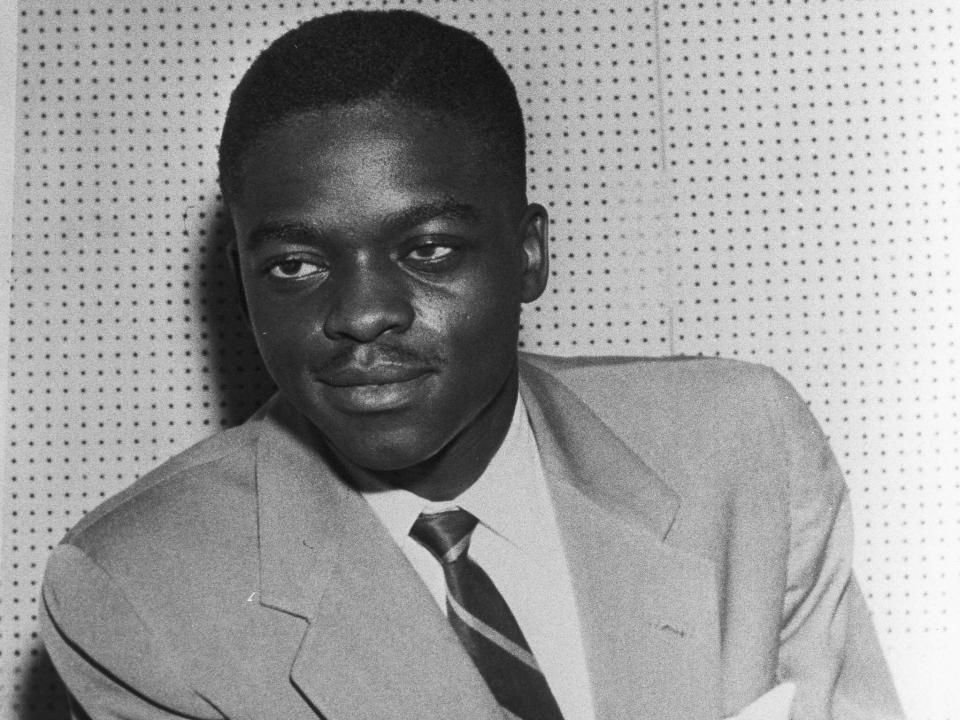
Source: Chicago Tribune, New York Times
As a teenager, Blackwell began attending New York City blues clubs with his uncle. Sometimes he would perform a couple of songs and members of the crowd would tip him with quarters.
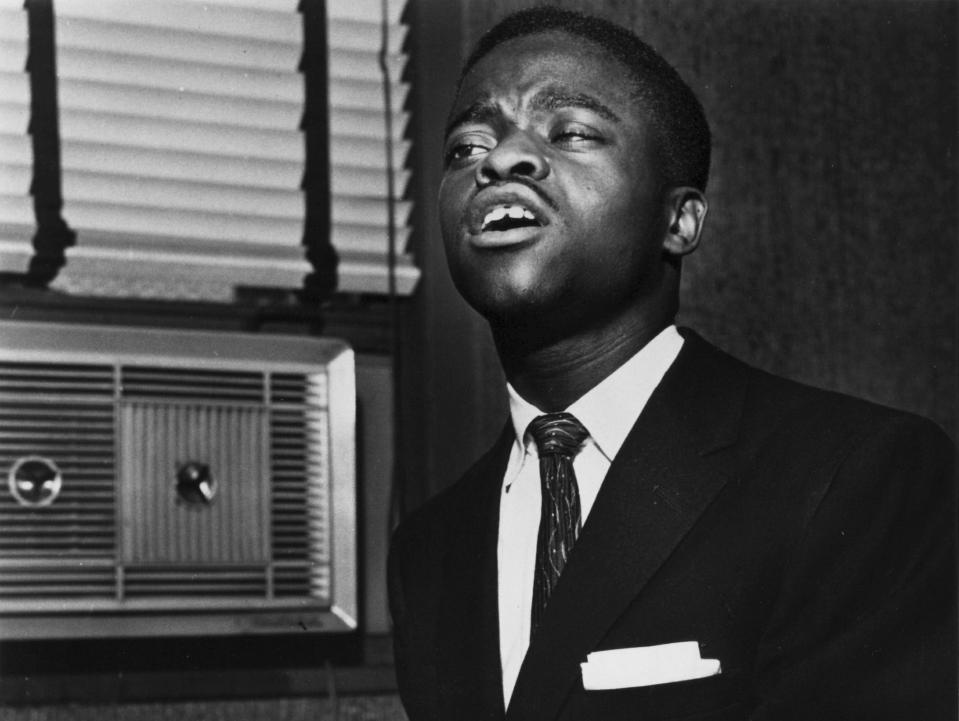
Source: Time Barrier Express via Encyclopedia
At age 16, he landed his first manager, and by 18, he began to sell some of his tracks. In 1952, Blackwell won a singing competition at the Apollo Theatre in Harlem, but didn't find much solo success because of racial barriers during the height of segregation in America.
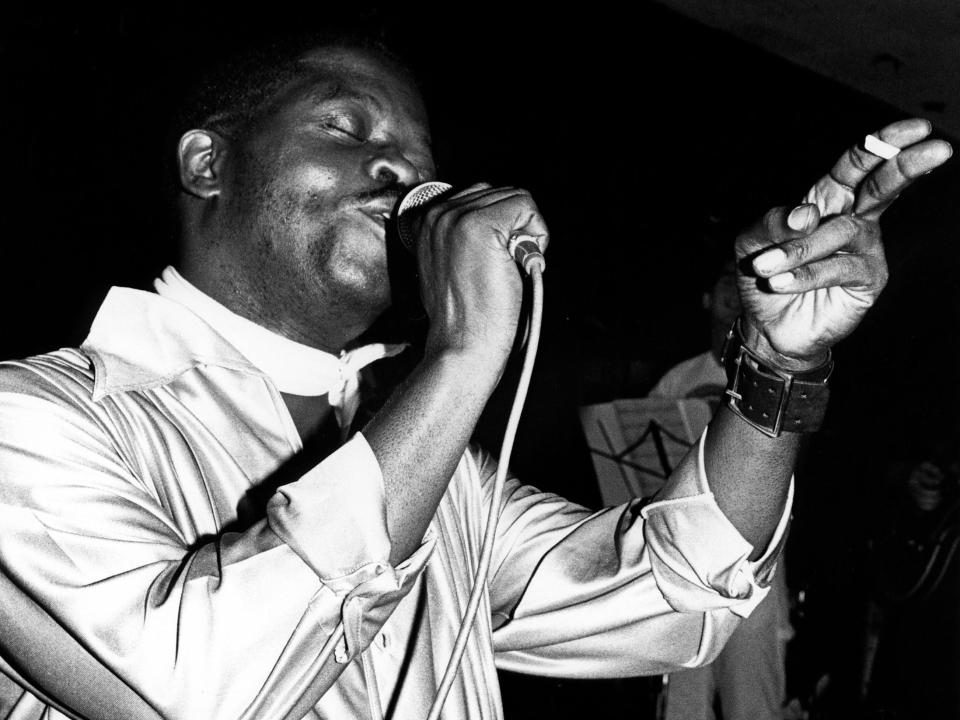
At the time, Black artists were dismissed to "race music" record labels and radio stations. Blackwell began to pivot his focus from commercial recordings to songwriting, with demonstration records of his compositions keeping his sound alive.
Aaron "Goldie" Goldmark at Shalimar Music Publishing is one of many notable music publishers that quickly developed a liking of Blackwell's vocals and lyrics. He was well-connected to Presley's entourage and organized getting Blackwell's demos in front of him for consideration.
Source: Washington Post, Songwriters Hall of Fame
His claim to fame, "Fever," was co-written with Eddie Cooley in 1955. The song was sold to Little Willie John and became an R&B hit in 1956. Then in 1958, Peggy Lee covered the song, leading to Presley's recording of the track in 1960 for his "Elvis Is Back" LP.
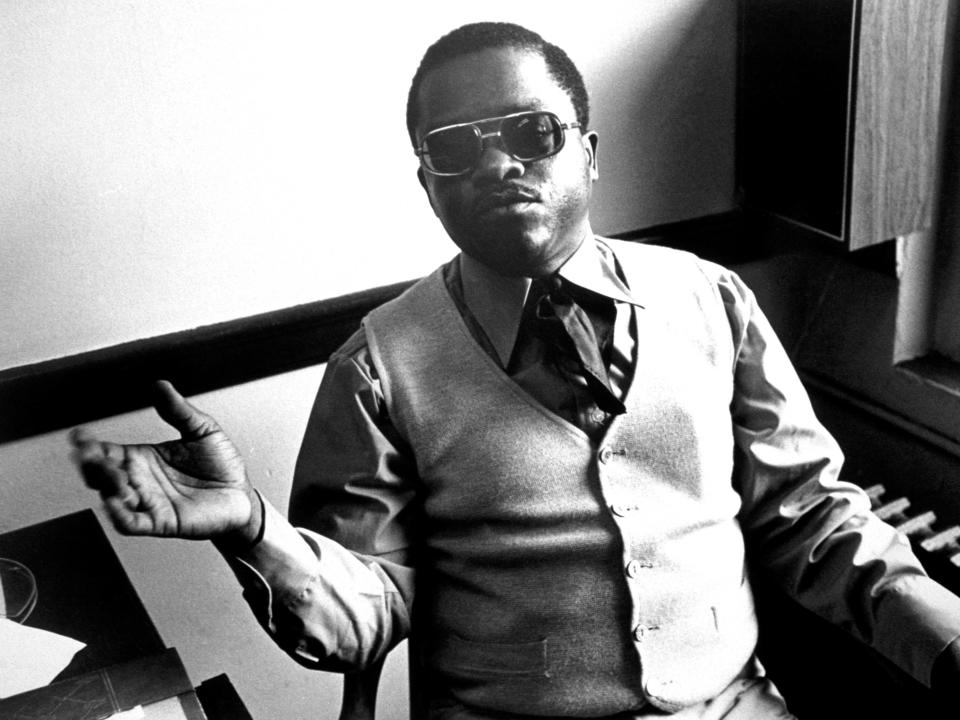
"Make Me Know It," another track written by Blackwell, was also included in the LP.
Source: Financial Times
During a recording session on July 2, 1956, RCA executive Steve Sholes presented Elvis with a handful of Blackwell's demos. Among the group was "Don't Be Cruel," Blackwell's signature song, and "Hound Dog."
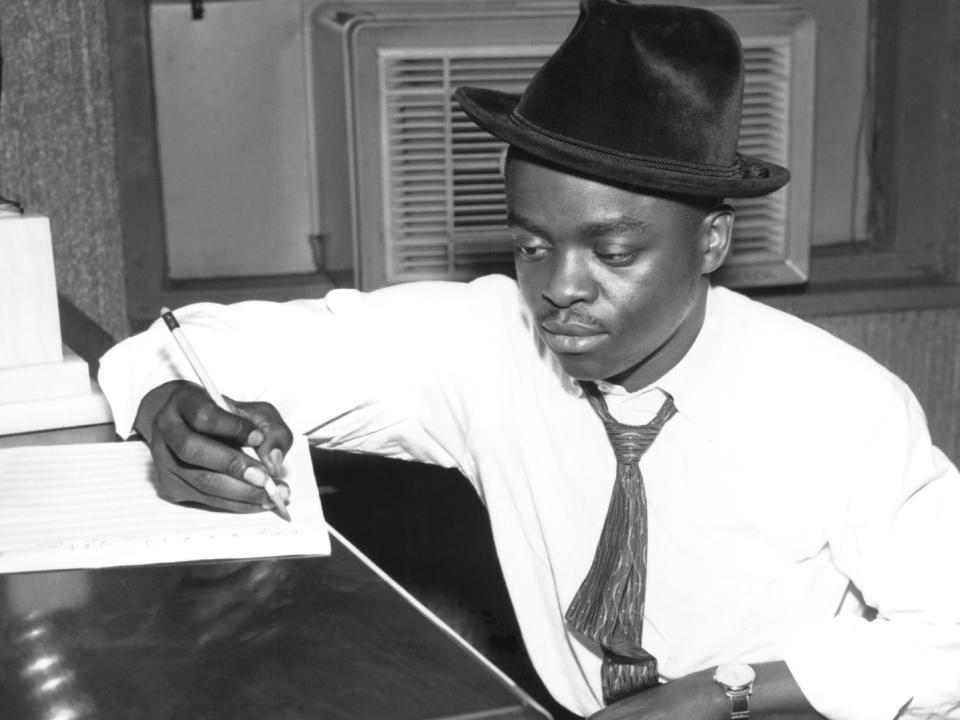
Presley loved Blackwell's sound and used both tracks on what is considered to be the greatest two-sided single hit record of his career. Standing alone, "Don't Be Cruel" landed #1 on Billboard's "Top 100" pop chart in 1956 for seven weeks.
Blackwell went on to write more material for Presley's second RCA album in September 1956. Of the session came another successful track — "Paralyzed" which spent 7 weeks on the "Top 100" in 1957.
The last of Blackwell's tracks for which Presley would receive co-writer credit was "All Shook Up." In 1957, the tune became Presley's biggest chart record throughout his entire career, landing 30 weeks in the "Top 100" and leading 8 weeks at the #1 spot.
Source: WKNO, American Songwriter
In 1962, Blackwell had joined forces with Winfield "Robey" Scott. The writing duo submitted "(Such An) Easy Question," which landed a spot on Presley's 1962 studio album, "Pot Luck."
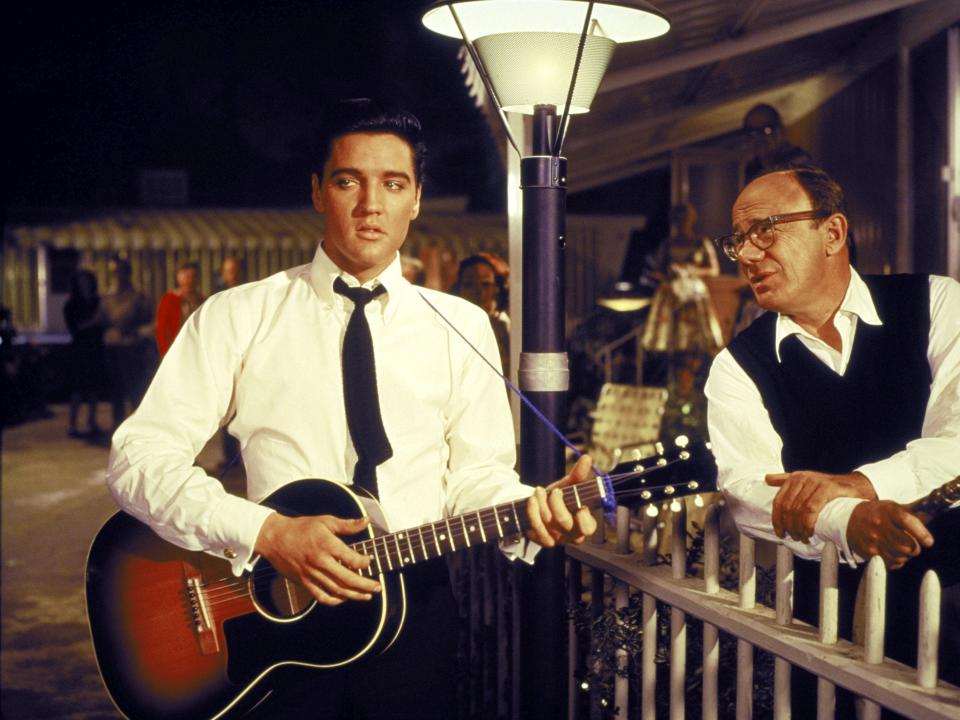
The track was such a success that it reached #11 on Billboard's "Hot 100" chart in 1965, when it was reissued as a single.
Later that year, the duo submitted demos for Elvis' Paramount musical, "Girls! Girls! Girls!" with "Return to Sender" and "We're Comin' In Loaded" landing spots on the soundtrack. When released as a single, "Return to Sender'' became a massive success for Elvis. The track spent 16 weeks in the "Hot 100" with 10 weeks in the top 10 and five weeks at #2.
The Blackwell-Scott duo kept the fire going by writing Presley's next single, "One Broken Heart For Sale." The record made an appearance in the 1963 musical film "It Happened at the World's Fair," starring Presley himself. The last Presley contribution from the pairing was "Please Don't Drag That String Around."
Source: Elvis History Blog
Presley was not the only artist Blackwell made a career of writing hit records for. Some of his greatest collaborations include "Great Balls of Fire" and "Breathless" for Jerry Lee Lewis, "Just Keep It Up" and "Hey Little Girl" for Dee Clark, and "Handy Man" for Jimmy Jones.
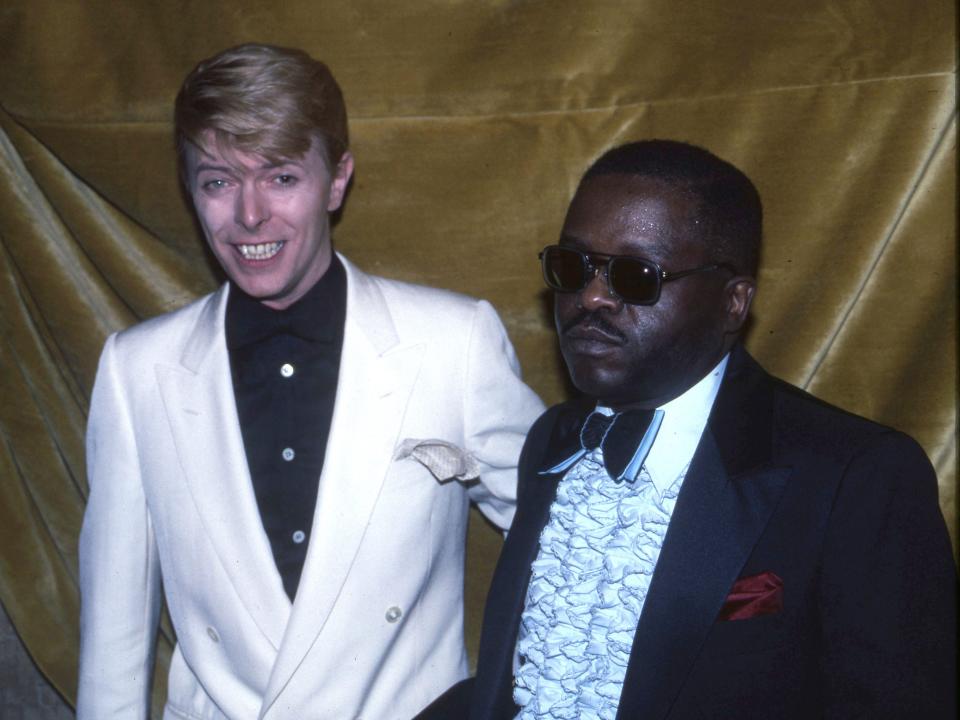
Many of Presely's other songs were covers of records by Black artists, like "Baby Let's Play House" by Arthur Gunter, "Milkcow Blues Boogie" by Kokomo Arnold's, "Good Rockin Tonight" and "I Need You So" by Ivory Joe Hunter, "Money Honey" by Jesse Stone, and "One Night" by Smiley Lewis.
Source: Secondhand Songs ,The San Diego Tribune
Over the course of his profession, Blackwell wrote over 1,000 songs. Fortunately, he went on to pursue his own career as a singer in the late 1970s, which involved recording an album with his top hit records and going on tour.
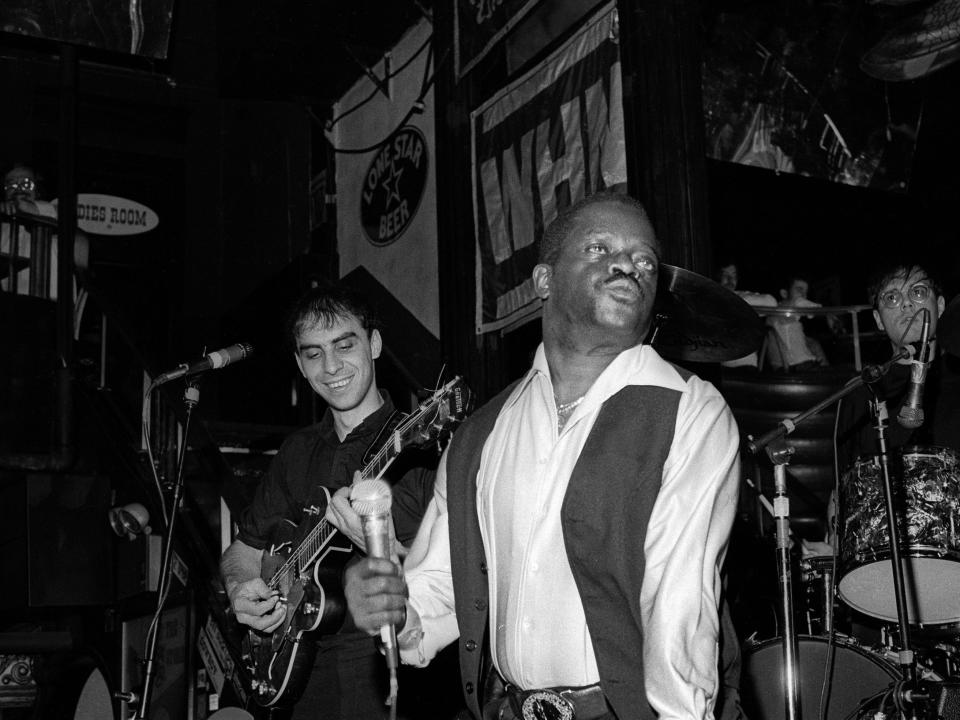
He was recognized on "The David Letterman Show" in 1987 where he performed "Don't Be Cruel" to a national audience. The similarity between Blackwell and Presley's sound was uncanny, giving rise to the overlooked influence of his artistry.
In 1986, he was inducted into the Nashville Songwriters Hall of Fame, as well as the National Academy of Popular Music's Songwriters Hall of Fame in 1991 and the Rock and Roll Hall of Fame in 2010.
Source: New York Times,
Correction: A previous version of this article stated that Elvis Preseley was a Nashville native. A previous verson also credited Blackwell for songs by other Black artists that Presley recorded covers of.
Read the original article on Insider
